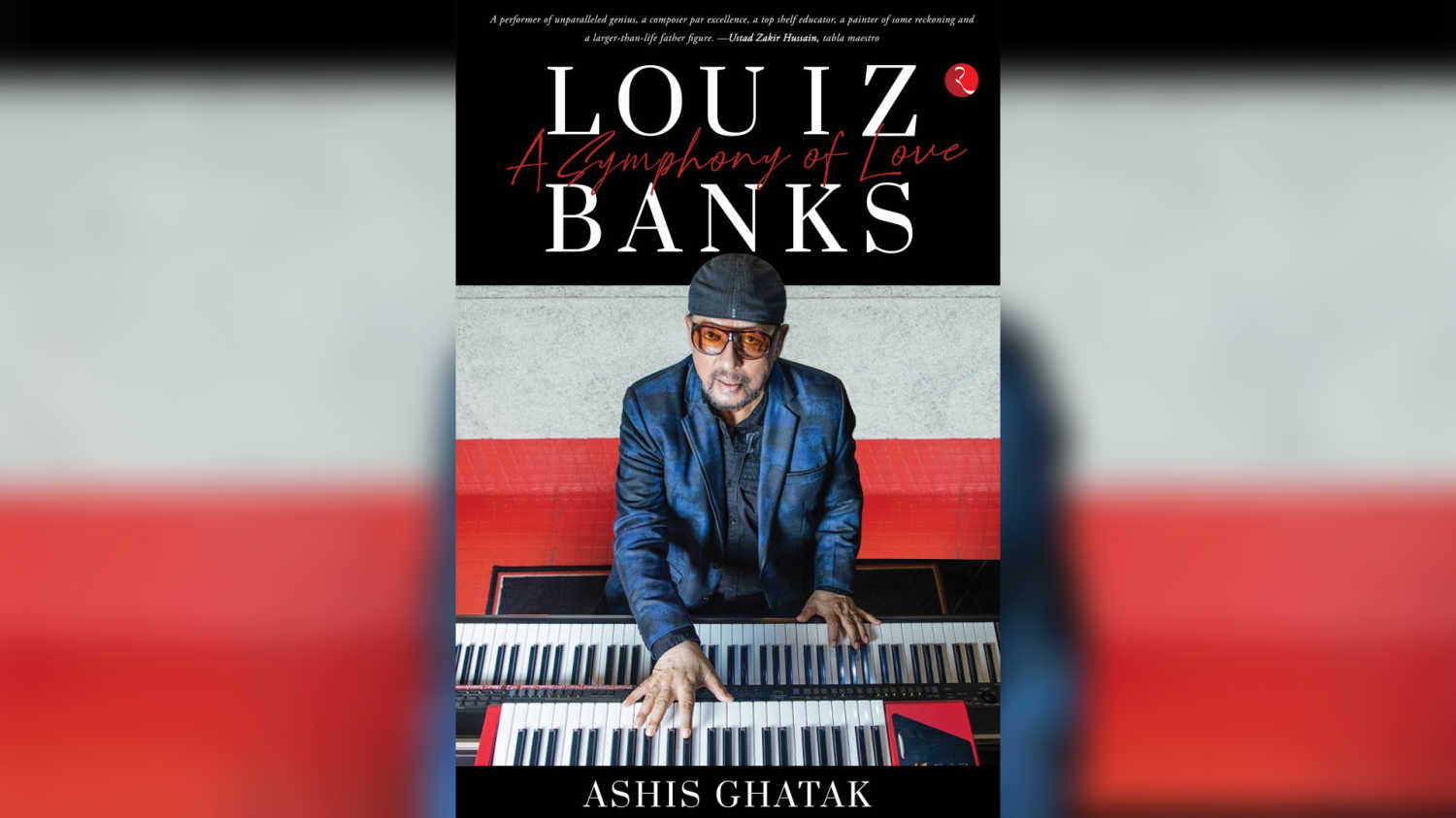On the versatile musician’s 80th birthday, a new book, A Symphony of Love, by Rupa Publications looks at the life and career of the maestro who is known as the godfather of jazz in India and whose collaboration with film composer RD Burman delivered some unforgettable scores.
Book excerpt: How a meeting with RD Burman brought Louiz Banks to Mumbai
Mumbai - 11 Feb 2021 7:30 IST


Ashis Ghatak
One day during a break in the performance, Louiz had just retired to a separate corner and asked for a cup of coffee when a waiter came to him and whispered something in his ear. Louiz looked up at the crowd and found one bespectacled young man smiling at him and smoking a cigarette. Louiz quietly made his way through the tables and chairs and took a seat opposite to the visitor.
‘You play quite well. I have been listening to you for quite some time,’ said the visitor and greeted Louiz with a smile, introducing himself, ‘My name is RD Burman. I am a music director in Hindi films.’
Louiz acknowledged the words of praise with a smile but remained indifferent as he had not much of an idea who Mr RD Burman was. The name could not draw any of the usual exclamations of ecstasy from Louiz as he was dispassionate towards Hindi films. Modest approval with a gentle smile was all that Louiz’s face could reflect.
However, the gentleman’s next words did surprise Louiz a lot.
‘Do you want to come to Bombay and work with me?’ Burman asked
‘Oh, my god! I know nothing about Hindi films and Hindi film music,’ exclaimed Louiz.
‘You don’t need to know anything. The hero of the film I am working on is playing the role of a pianist. When I heard you, I thought I might ask you to play a few piano pieces which I can use in the film. Please come over to Bombay and play for me.’
Louiz was hesitant as he had no clue how music in movies was made. Moreover, he was so content with what he was doing in the nightclub that he didn’t feel the need for any different pursuit. But being a true musician at heart, there was also a restlessness to explore newer horizons in composing music. The proposal for playing a few piano pieces for 'Bollywood' music was something he had never tried and excited him. He thus agreed to the proposal with the condition that he would come back to Calcutta once the assignment was done.
Louiz couldn’t foresee the future awaiting him. From the little stretch of Park Street, a journey into a vast unknown world needed a leap. Louiz was amazed by the atmosphere and the incredible magnitude of RD Burman’s recording studio at Film Centre. He was stunned by the grandeur of music-making in the recording. He was to play piano solos because the leading man of the film, Shashi Kapoor, would be seen playing the piano.
Louiz composed a long piano solo for the song ‘Suhani Chandni Raatein’ and RD Burman used it in the intro of the song. The song went on to become one of the most popular Mukesh songs of all time. Apart from the melancholic ‘Suhani Chandni Raatein’ and a lullaby ‘Lalla Lalla Lori’, no other piano pieces got much recognition or caught any widespread attention. But Louiz got new exposure. The new domain of the largest film industry of the world fed on film music was introduced to him. It gave Louiz a new creative spectrum. He had, so far, been acquainted with the most ordinary and amateurish music recording system of Calcutta. For him, recording an album had been more out of fun and camaraderie with fellow musicians. Recording in such a large studio in Film Centre had been an eye-opener. Those seven days in Bombay introduced Louiz to yet another unfamiliar domain, Indian classical music and Eastern instrumentation. For the first time, Louiz could see a glimpse of the juxtaposition of Occidental and Oriental music arrangements. Louiz remembered the experience to have introduced him to so many things of which he didn’t have any exposure.
'It was quite a different experience. I got the opportunity to play the piano the way I like to play. It wasn’t jazz per se, but it was very pianistic music. So, I improvised a lot and co-composed many of the tunes with him [RD Burman] at that time because it was piano-based. And he gave me a kind of a free hand to play in big introductions and interludes and things like that. Because the film demanded that from the hero who had to sit at the piano and play, he wanted all these frills and arpeggios and all those pianistic things. Seeing about 100 musicians, 50 violin players, I mean, it was quite amazing. I was quite amazed at what RD Burman was doing, what he was creating within that orchestra.'
At the end of the recording, when Louiz was preparing to return to Calcutta after a week, RD Burman came up with a proposal, ‘You stay here in Bombay. There will be a lot of work and there will be money galore.’ But Louiz was a man who was deeply rooted in his own aesthetic values. He was not carried away by the lures of lucre. On his return journey, he carried with him the experiences and gratefulness of getting exposed to a diverse genre of music. Still, he didn’t want to leave his passion for jazz that could only be fulfilled at Blue Fox. ‘All right. Get back to Calcutta, but remember my door is always open to you. Join me whenever you feel like,’ RD Burman assured Louiz.
Excerpted from Louiz Banks: A Symphony of Love by Ashis Ghatak with permission from Rupa Publications. Click here to buy your copy.



